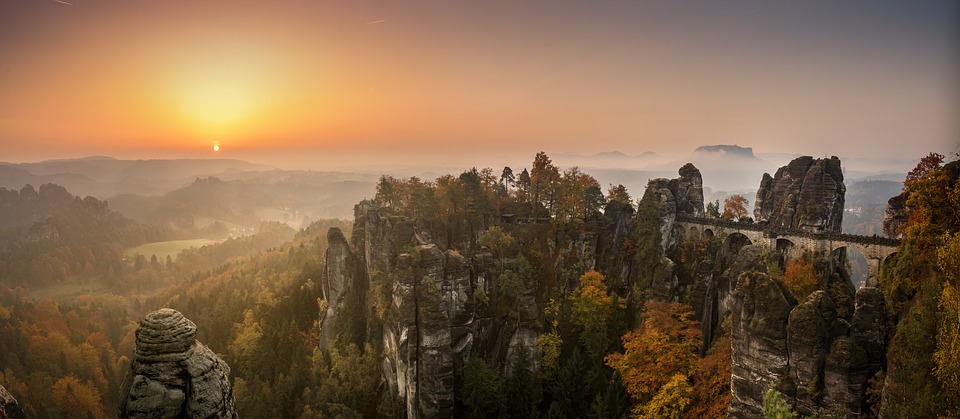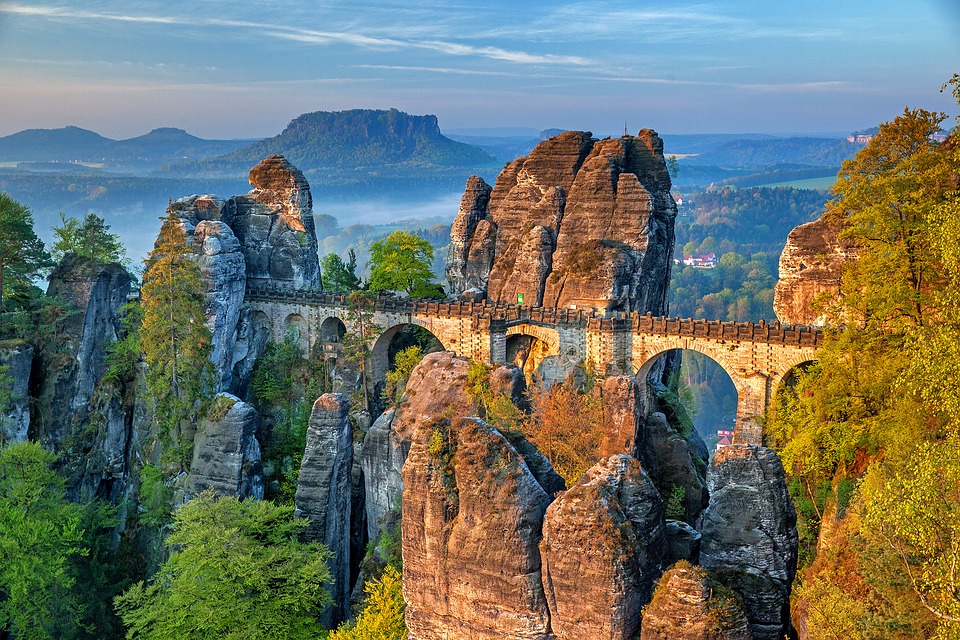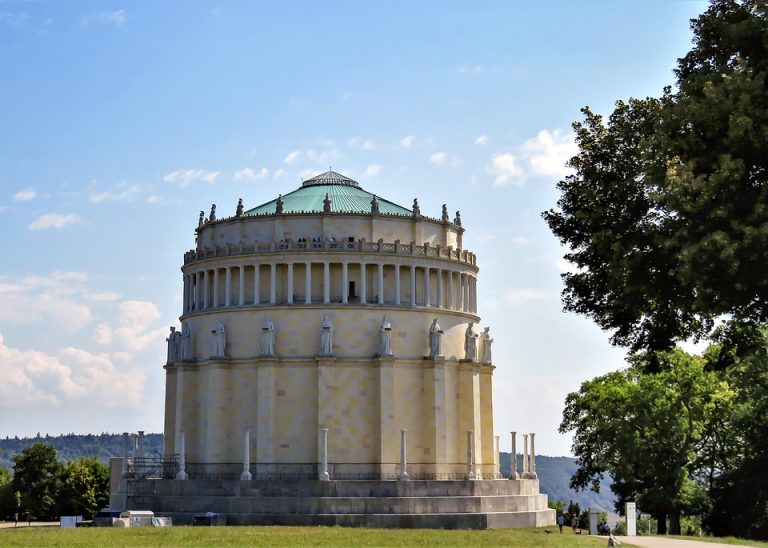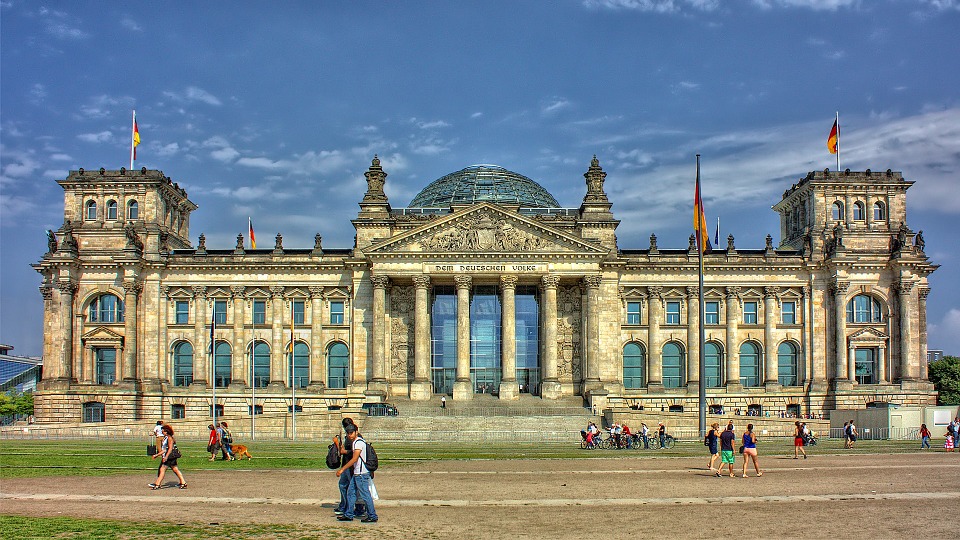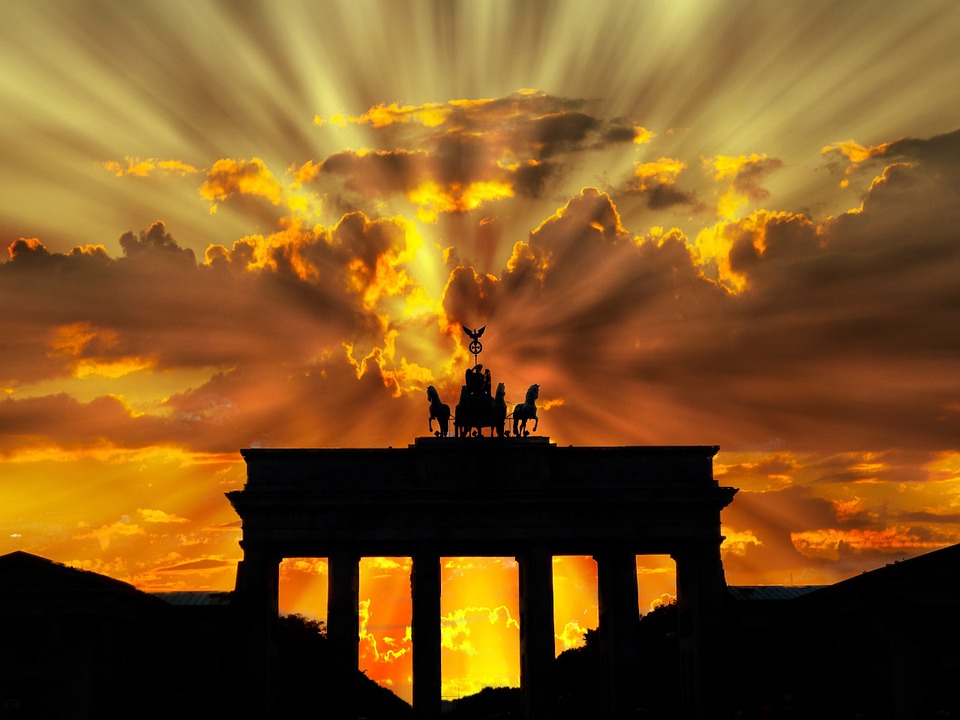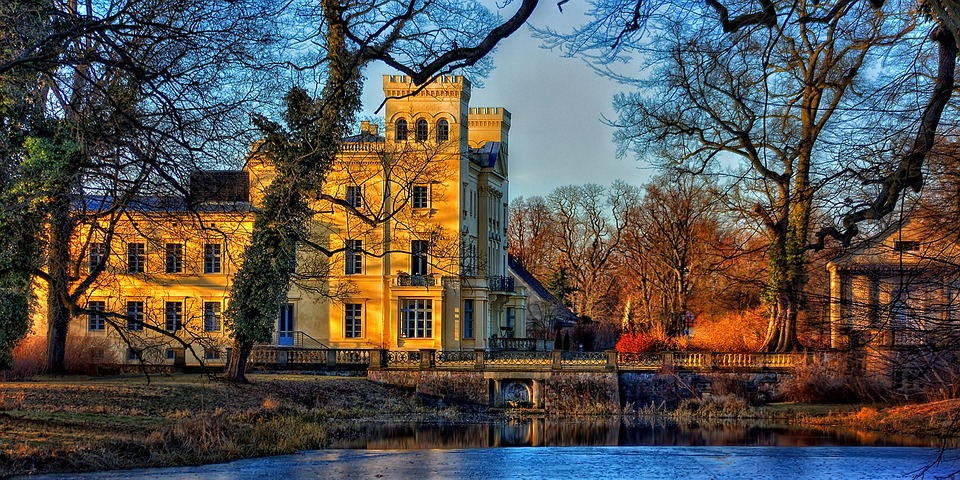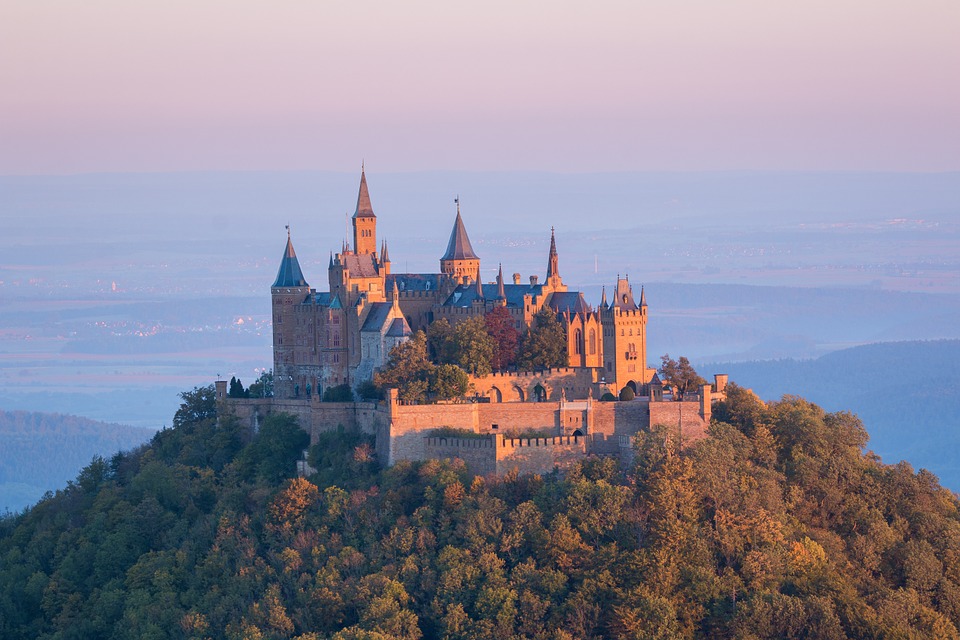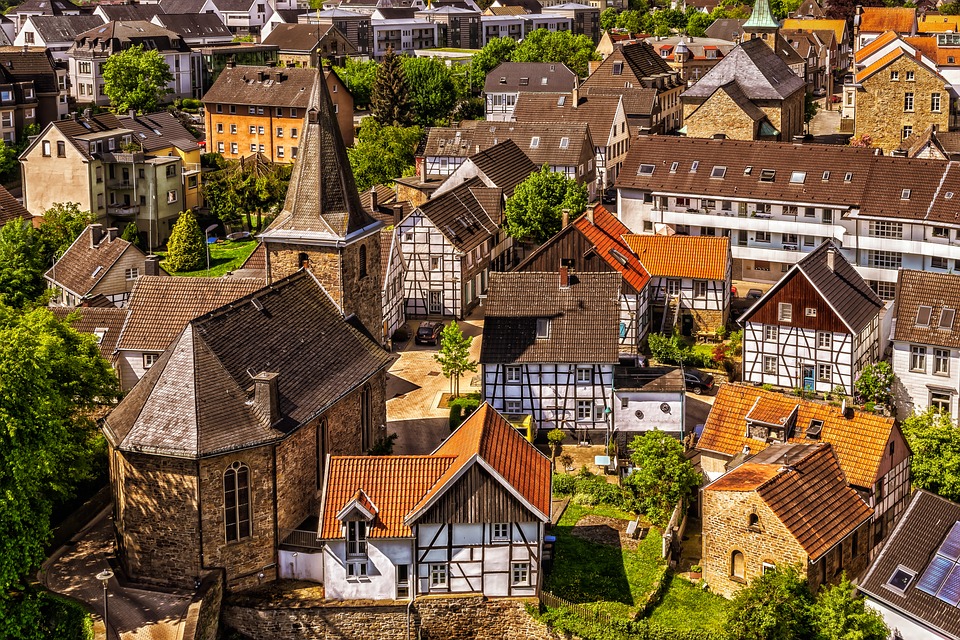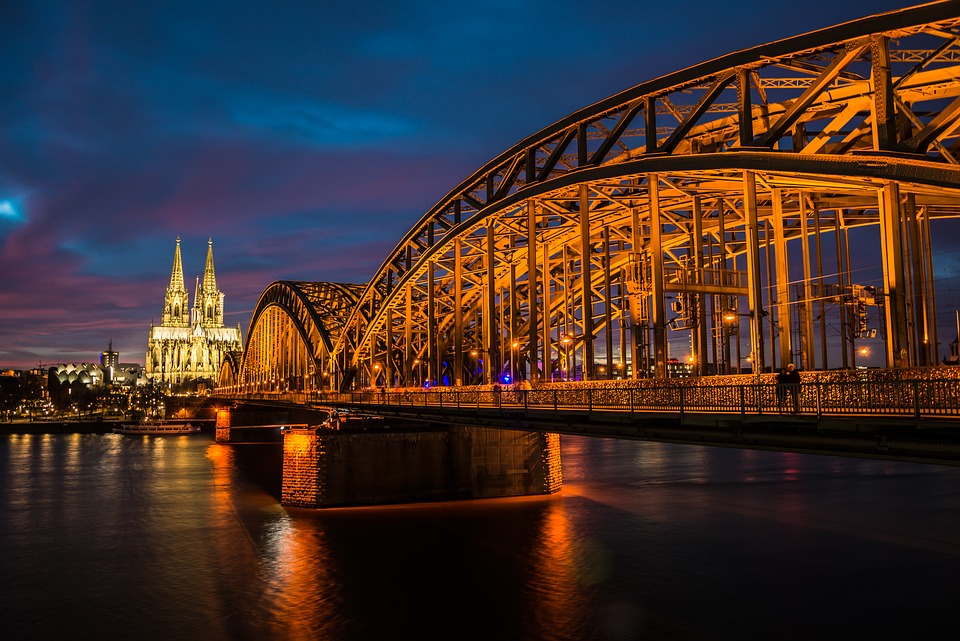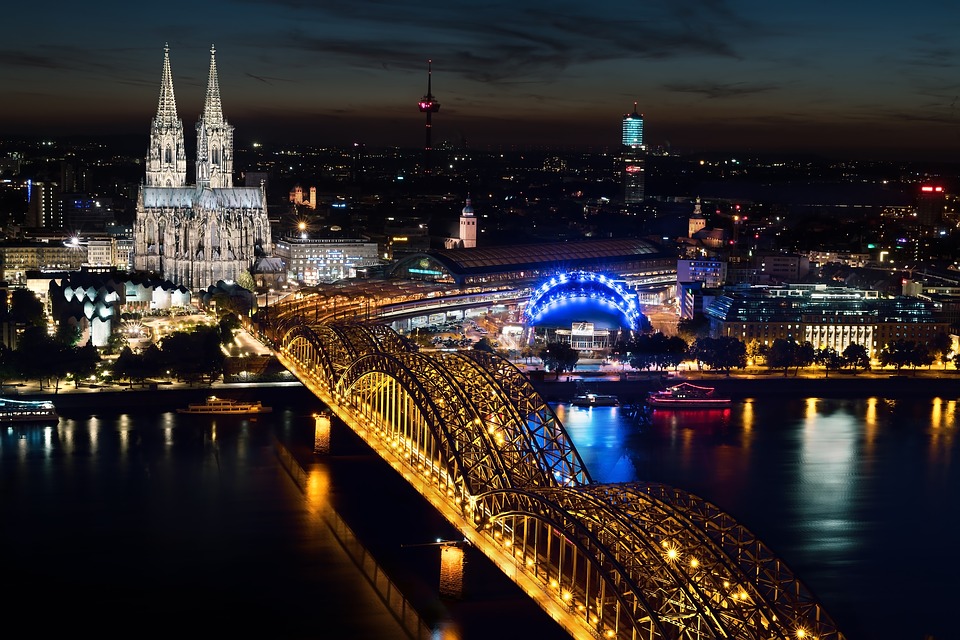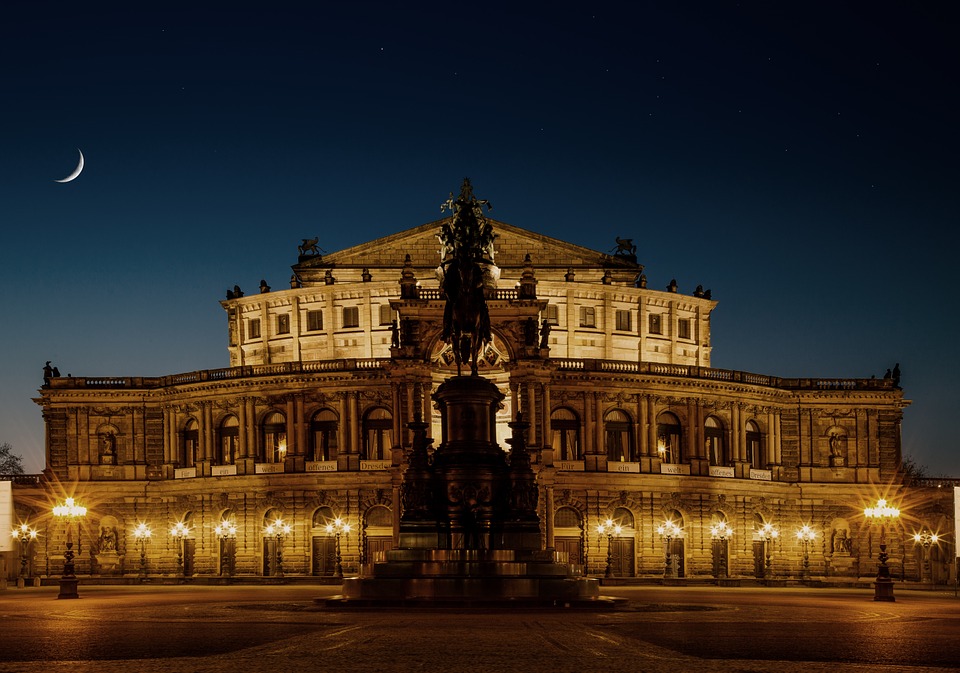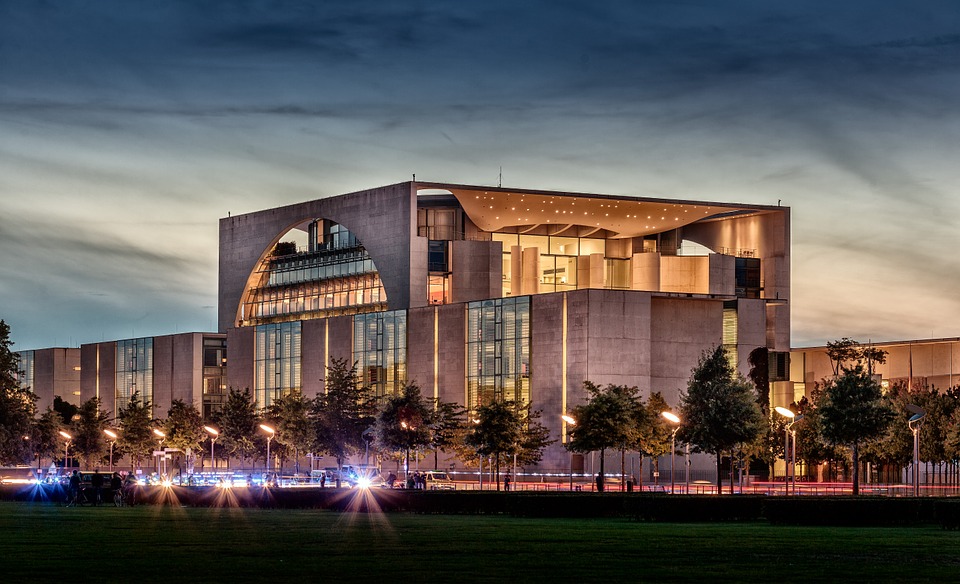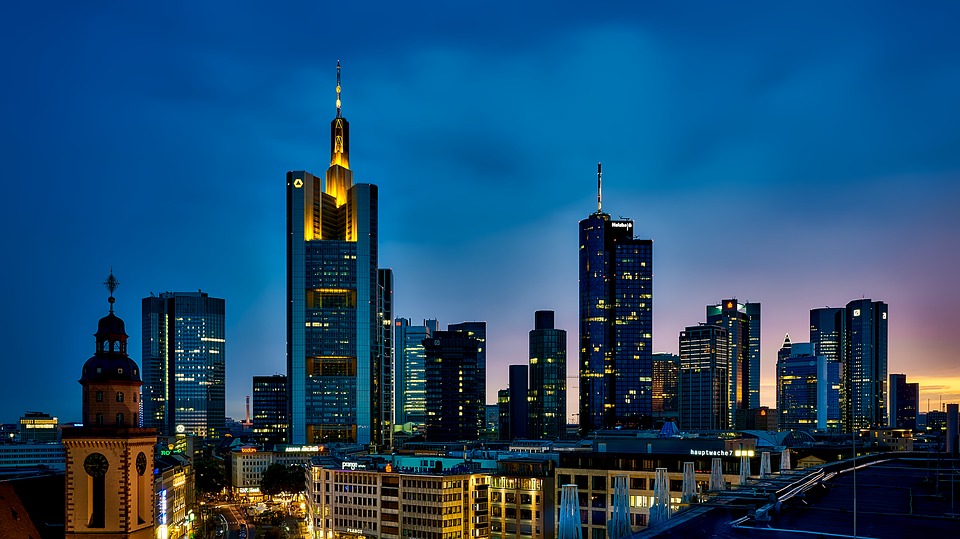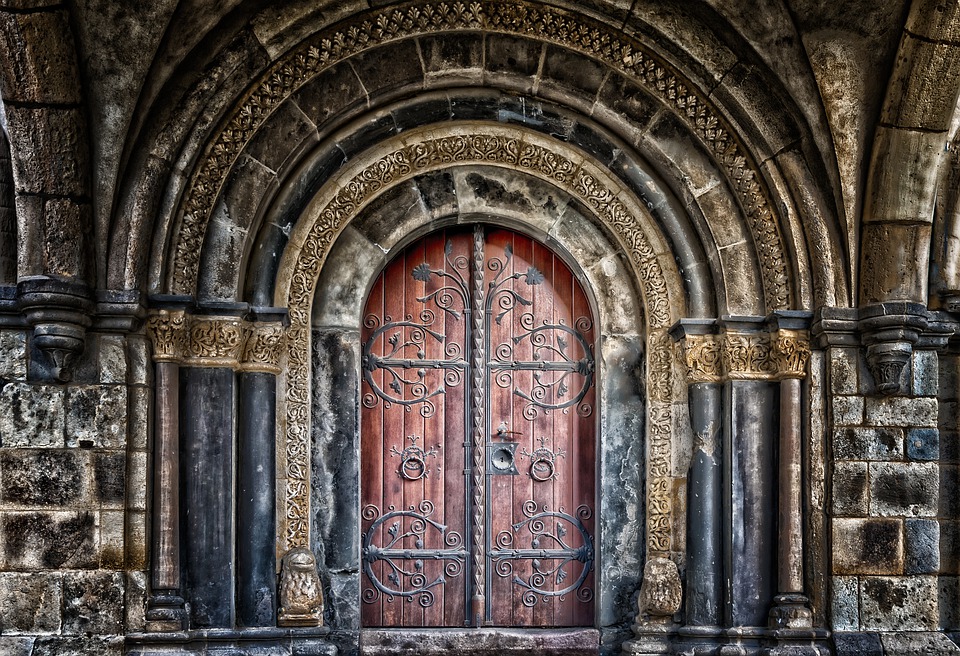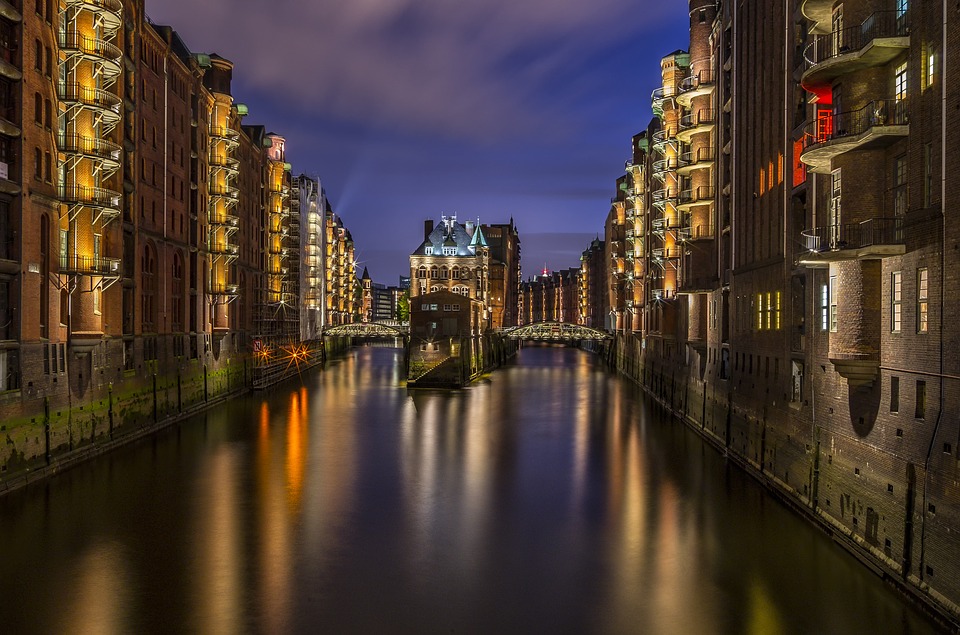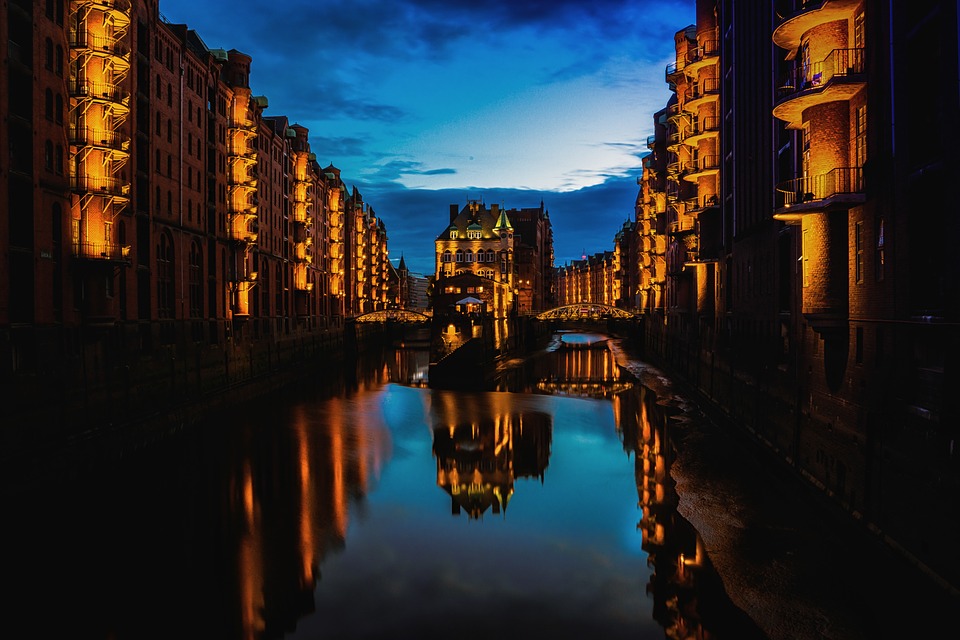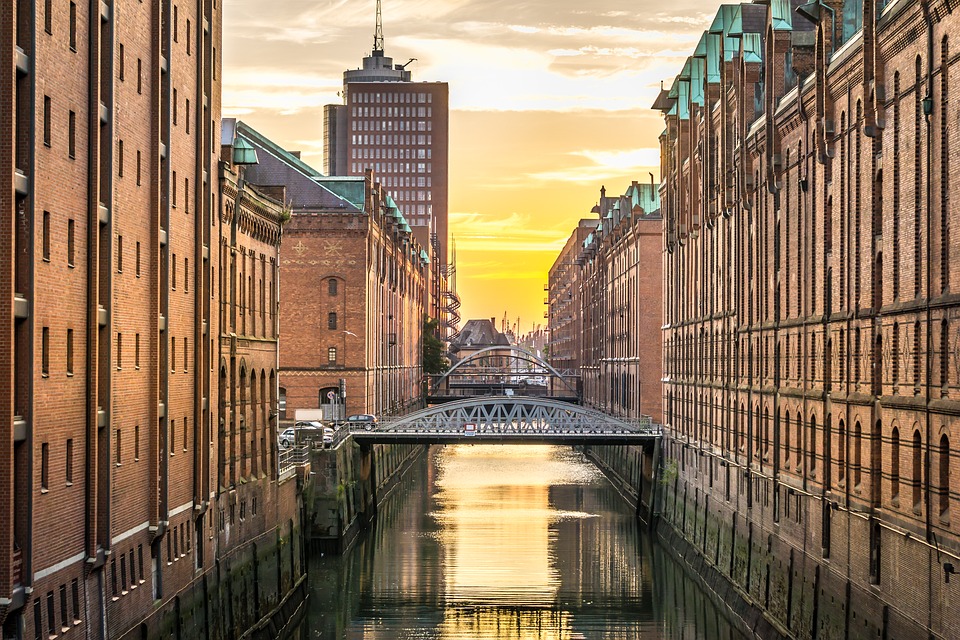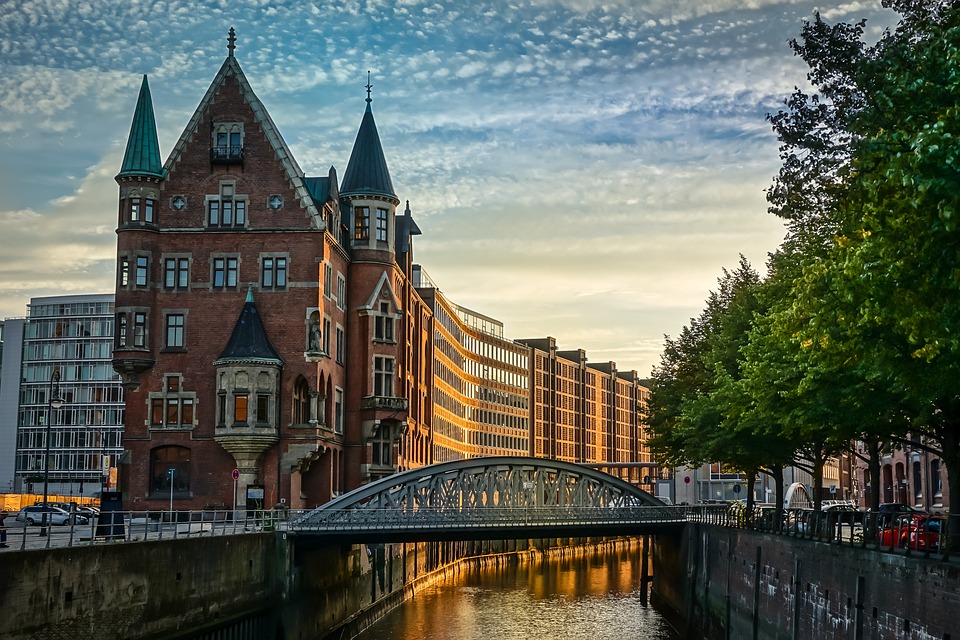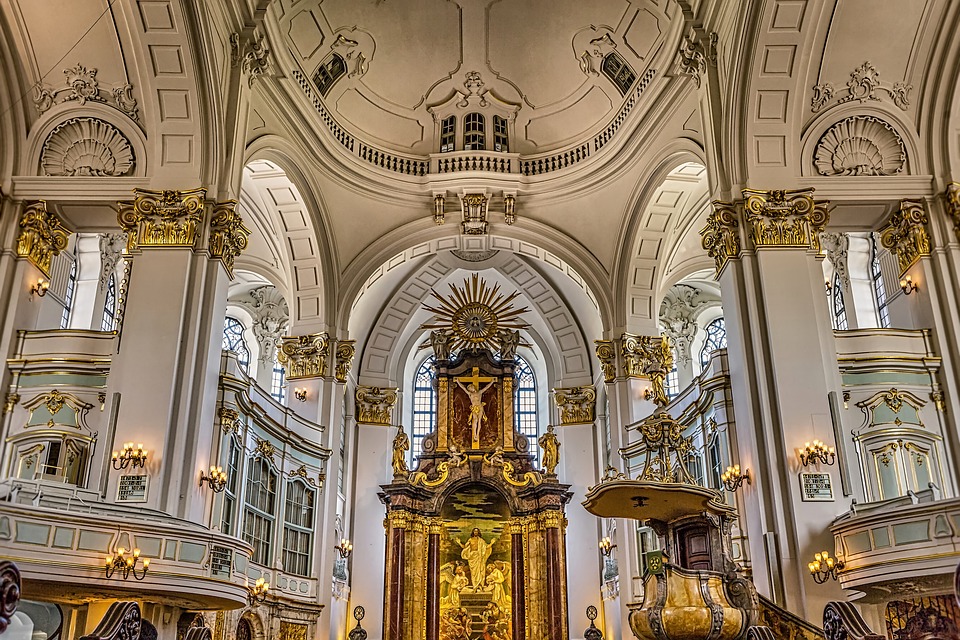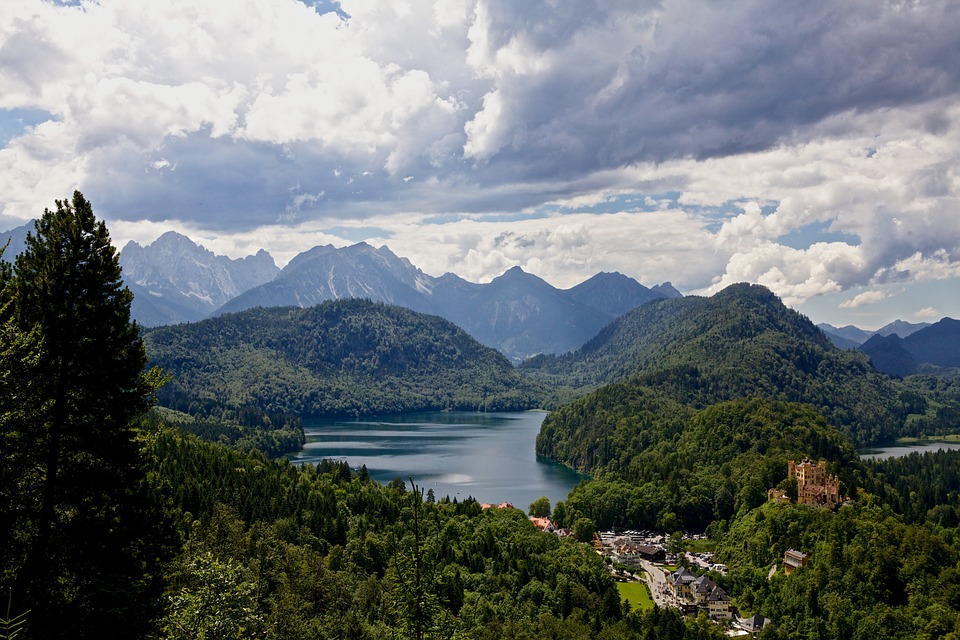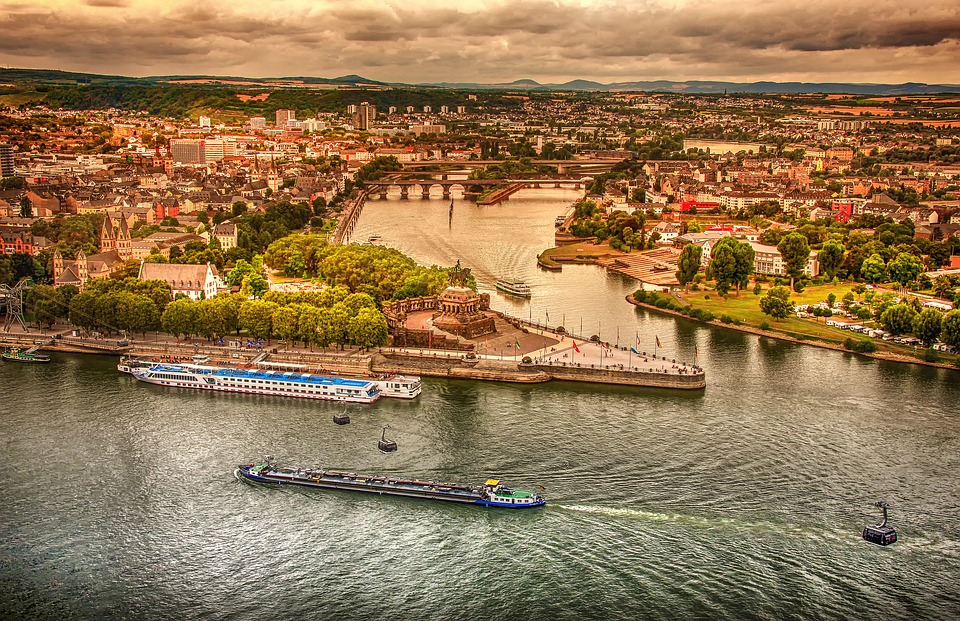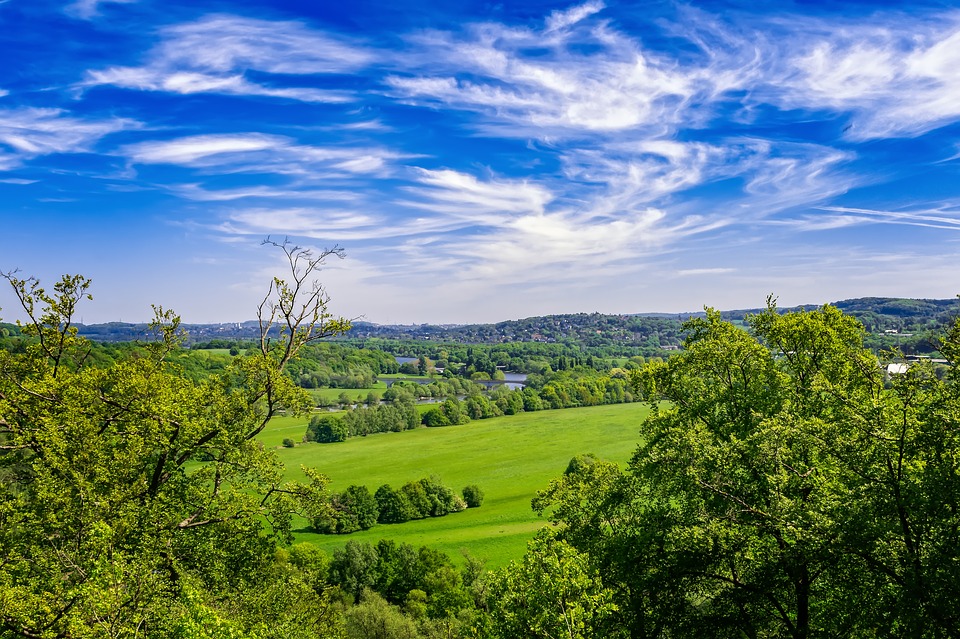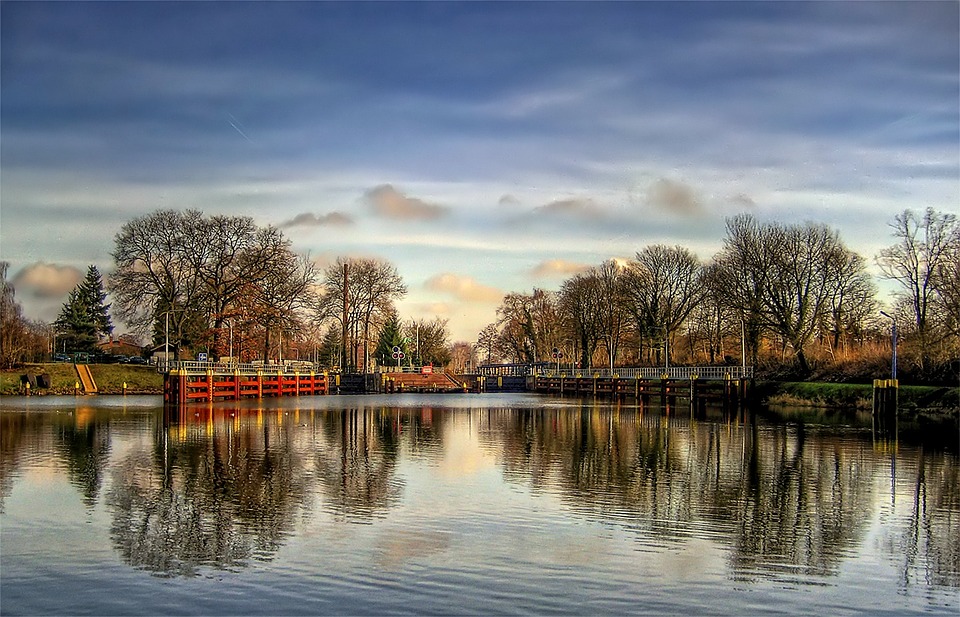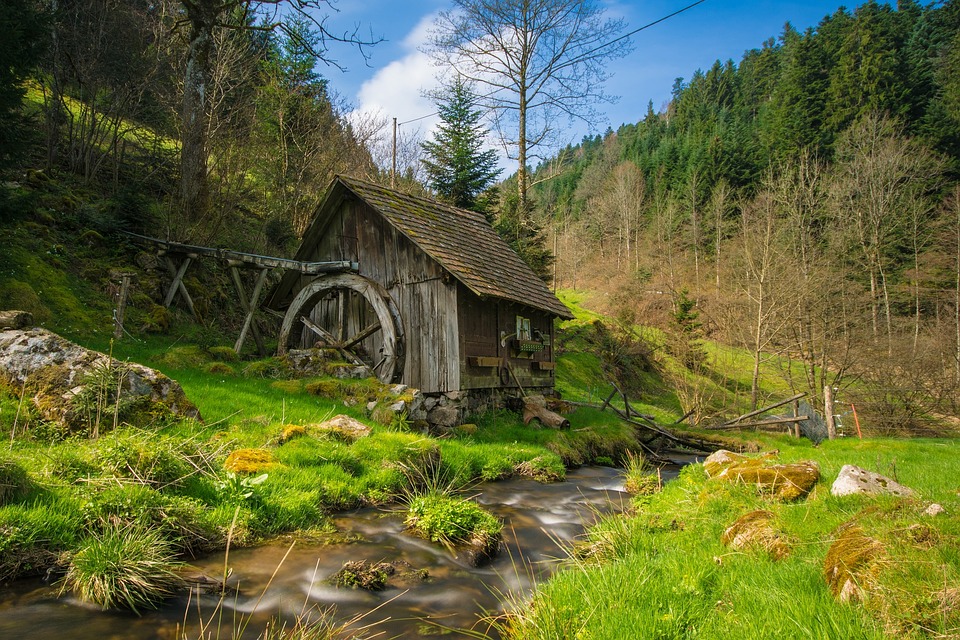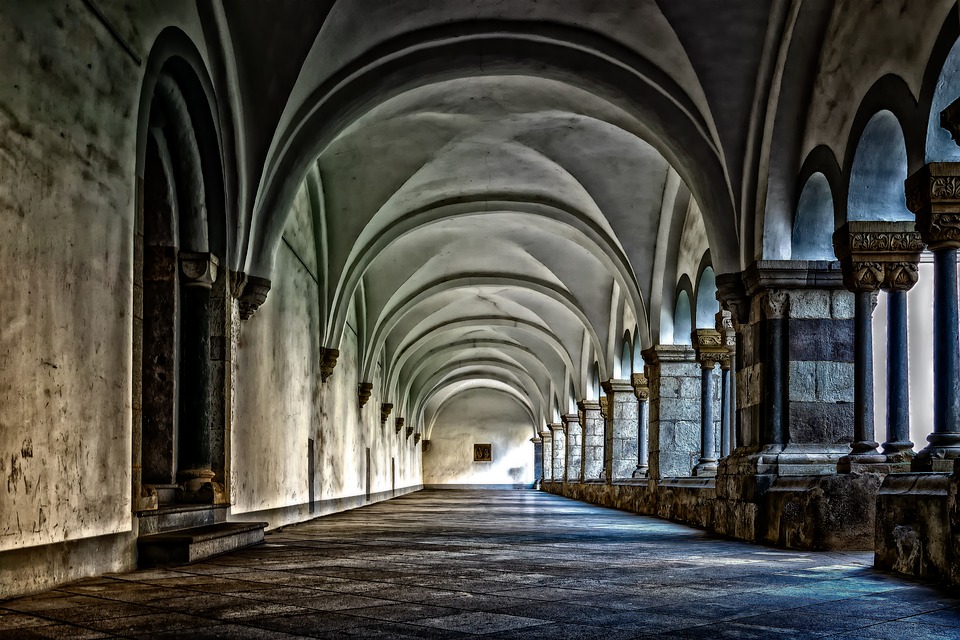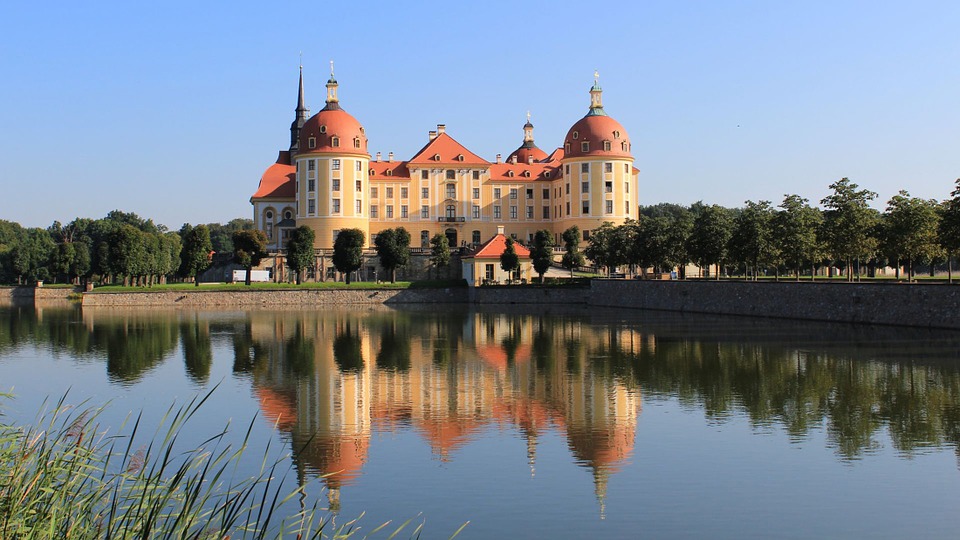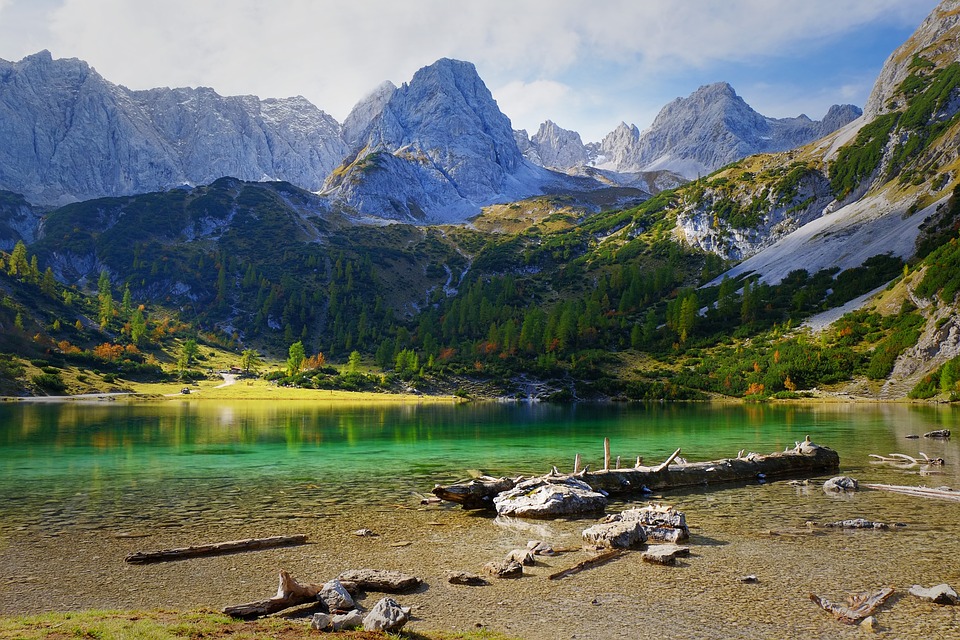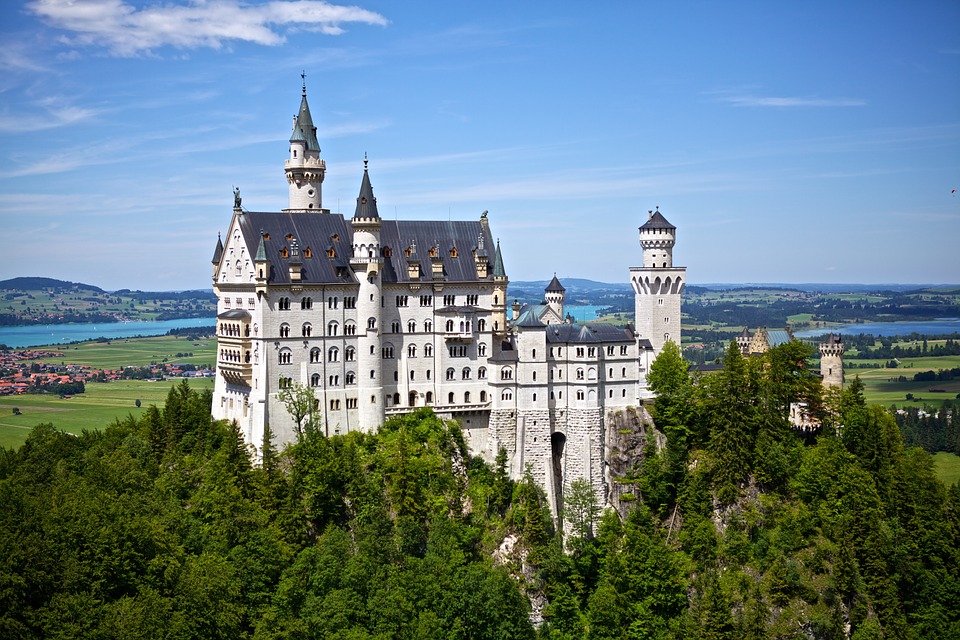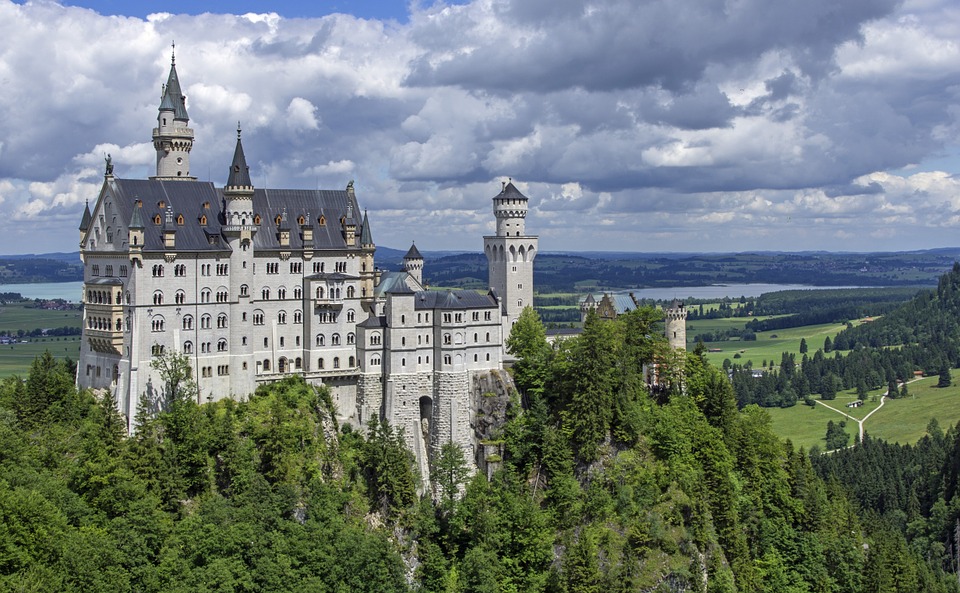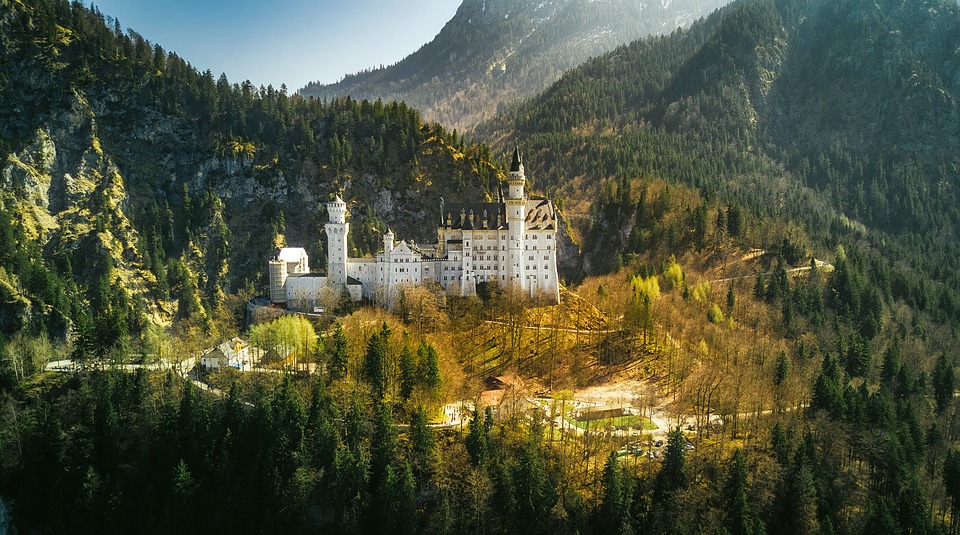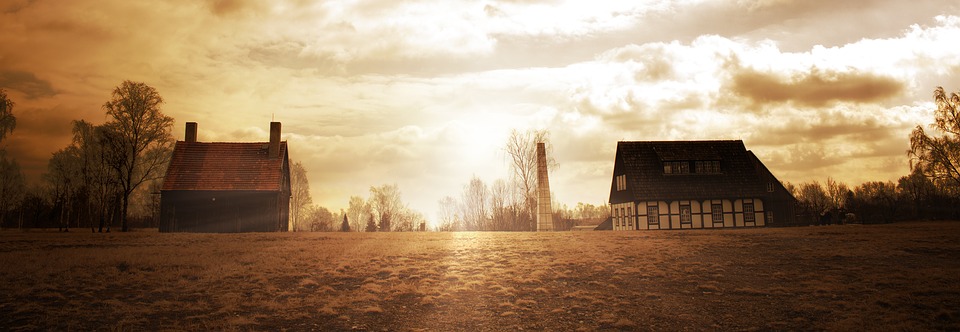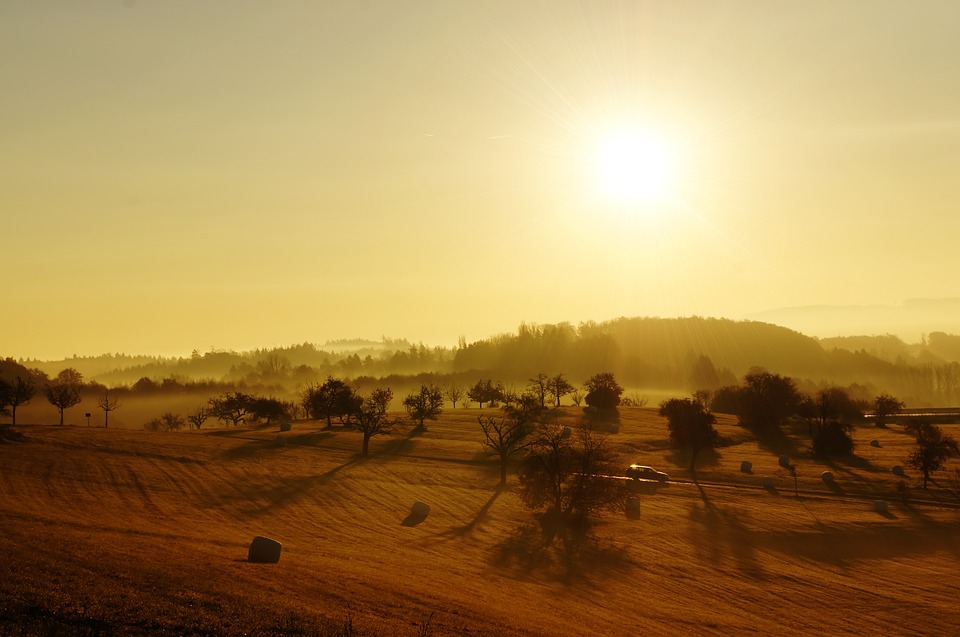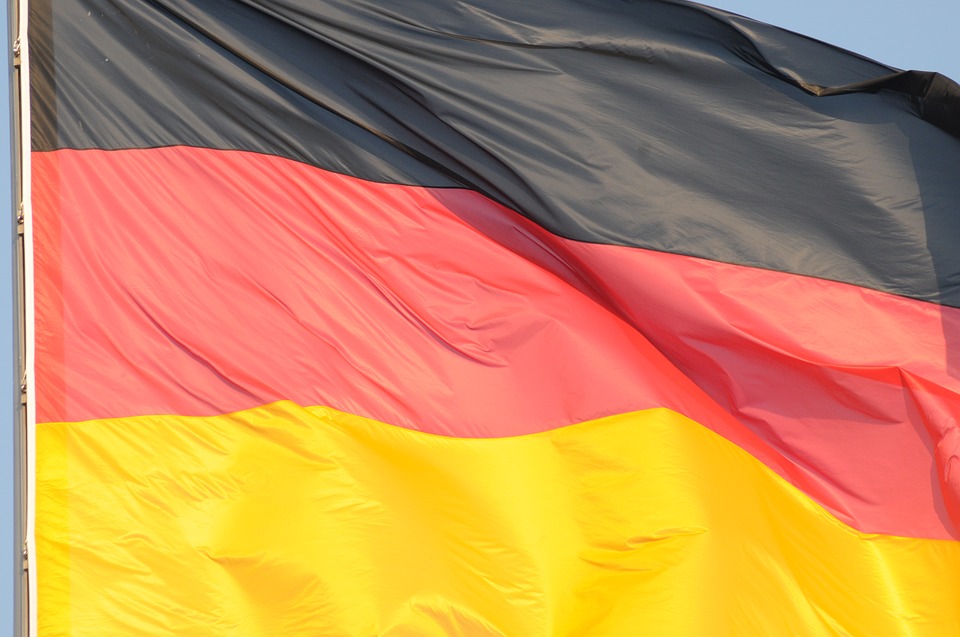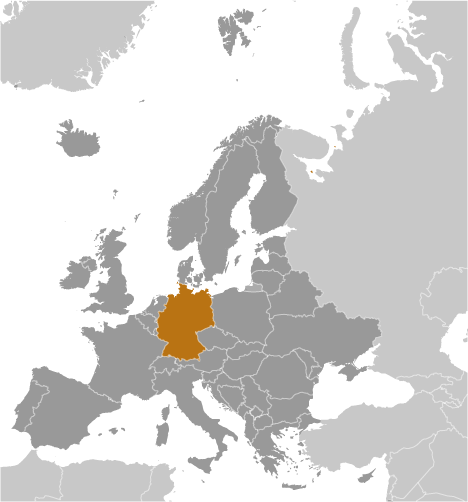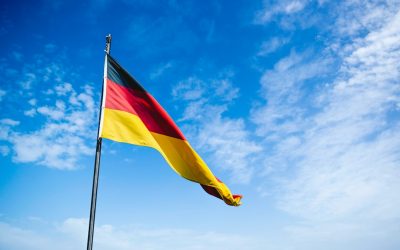Germany
(Bundesrepublik Deutschland (Federal Republic of Germany))

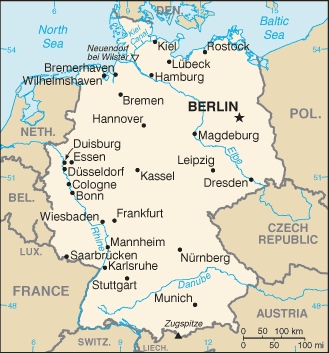
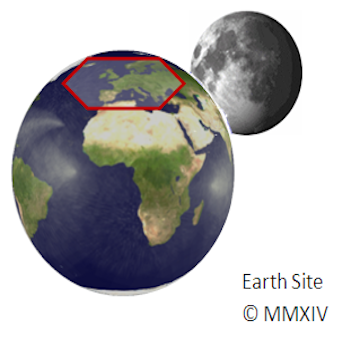
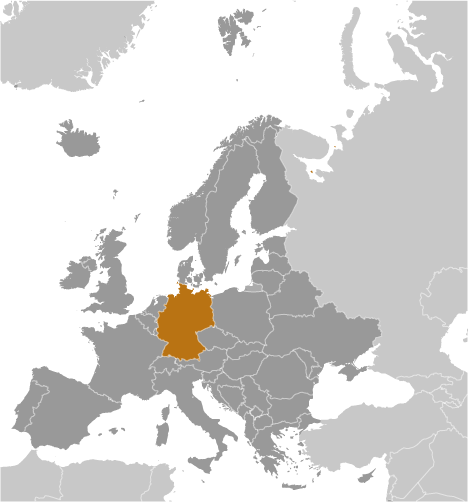
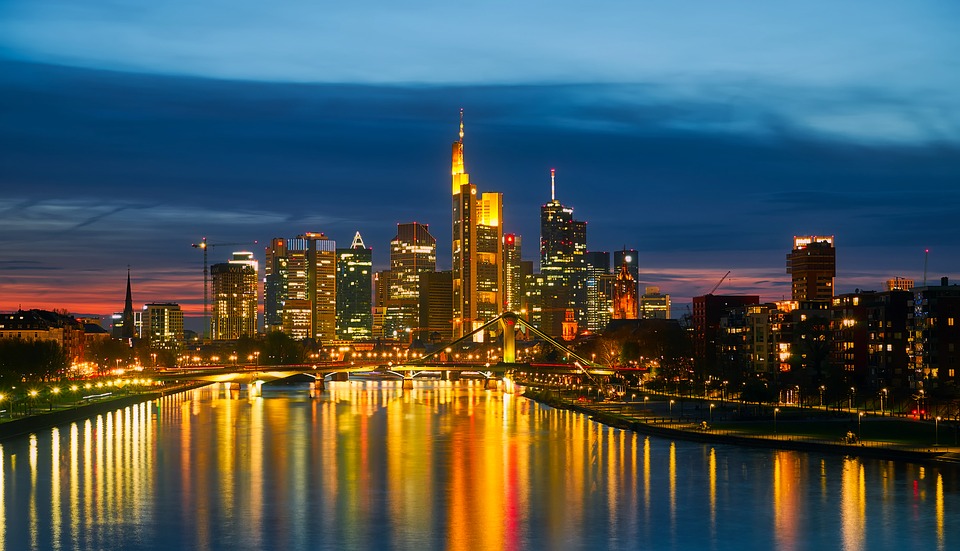
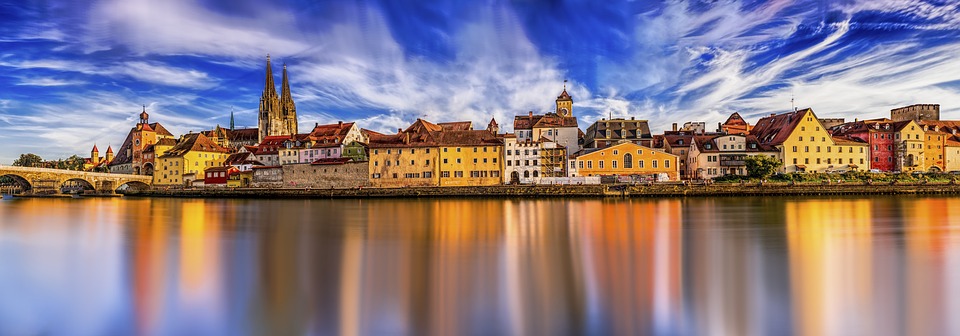
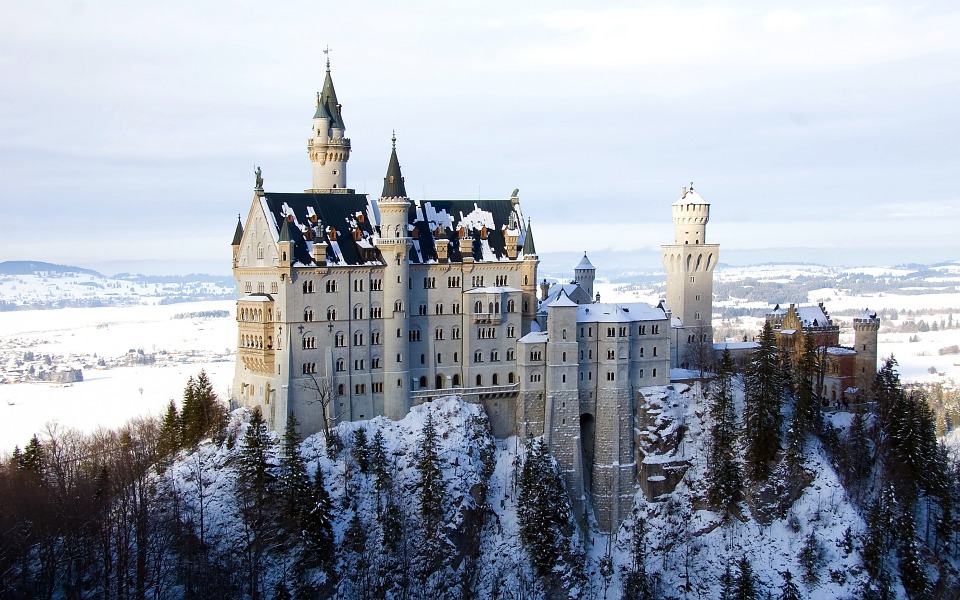
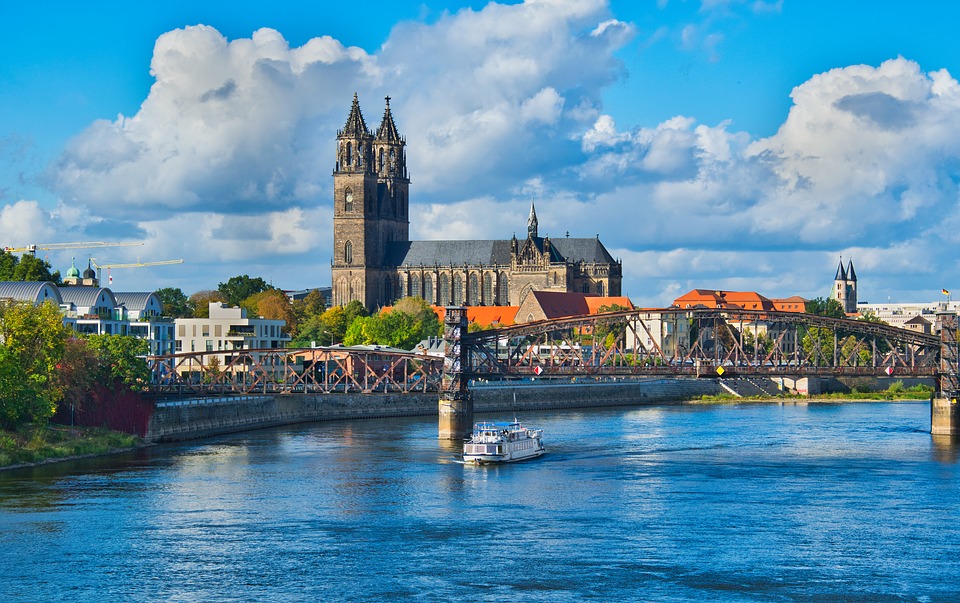
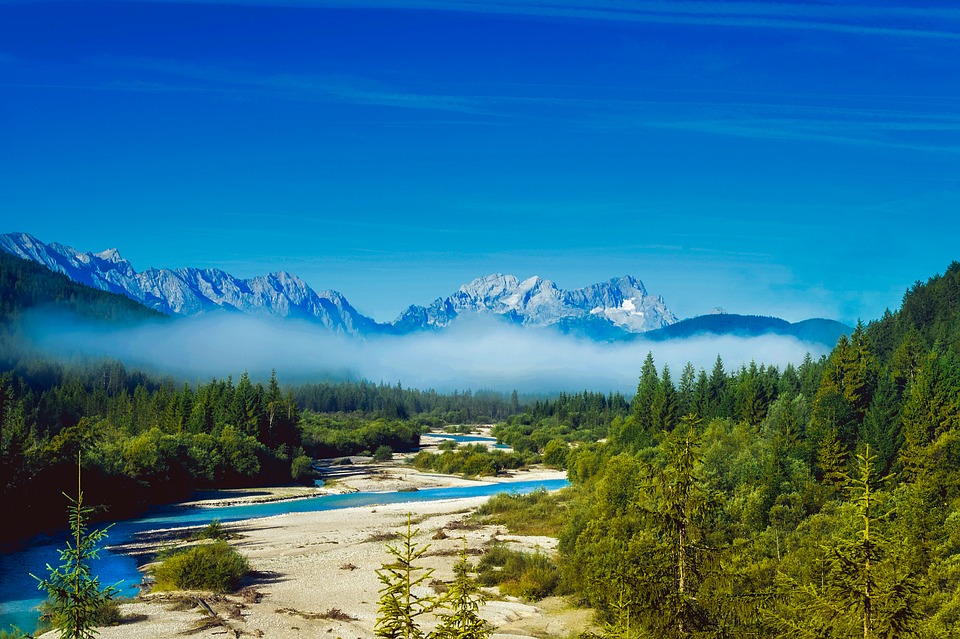
Capital: Berlin
Population (Estimated July 2012): 81,305,856
Area: 357,104 km2 or 137,879 mi2
Currency: Euro (€)
Official Language: German
Political Information: Federal Parliamentary Constitutional Republic
Official Religion: No Official Religion (approximately 34% of the population are Protestant, 34% are Roman Catholic, 3.7% are Muslim and 28.3% have other religious beliefs)
Highest Mountain: Zugspitze at 2,963m or 9,721ft
GDP Official Exchange Rate (OER is more precise at gauging a countries economic power)
(Estimated 2011): $3.629 trillion (US$) or (GBP)
GDP (OER) Per Capita (per member of the population estimated 2011): (US$) or (GBP)
GDP Purchasing Power Parity (PPP is good for gauging living conditions and use of resources but not as accurate as OER. This data has been calculated based on the sum value of all goods and services produced in the country valued at prices prevailing in the United States)
(Estimated 2011): $3.085 trillion (US$) or (GBP)
GDP (PPP) Per Capita (per member of the population estimated 2011): $37,900 (US$) or (GBP)
Time Zone (GMT/UTC): +1:00
Counties/Provinces/States: 16 states (Laender, singular – Land); Baden-Wurttemberg, Bayern (Bavaria), Berlin, Brandenburg, Bremen, Hamburg, Hessen (Hesse), Mecklenburg-Vorpommern (Mecklenburg-Western Pomerania), Niedersachsen (Lower Saxony), Nordrhein-Westfalen (North Rhine-Westphalia), Rheinland-Pfalz (Rhineland-Palatinate), Saarland, Sachsen (Saxony), Sachsen-Anhalt (Saxony-Anhalt), Schleswig-Holstein, Thuringen (Thuringia); note – Bayern, Sachsen, and Thuringen refer to themselves as free states (Freistaaten, singular – Freistaat)
Leaders: Acting President Horst Seehofer with Chancellor Angela Merkel.
Sources: CIA World Fact Book, Encyclopaedia Britannica.
Germany
Germany, officially known as the Federal Republic of Germany, is a country located in the heart of Europe. It is bordered by nine other countries, making it a central hub for trade and cultural exchange. With a population of over 83 million people, Germany is the most populous country in the European Union and the fourth-largest economy in the world. The capital city, Berlin, is known for its rich history, vibrant arts scene, and diverse population. Germany is also home to other major cities such as Munich, Hamburg, and Frankfurt, each with its own unique charm and character.
The country is known for its strong economy, efficient infrastructure, and high standard of living. Germany has a rich cultural heritage, with a long history of contributions to art, music, literature, and philosophy. The country is also famous for its engineering and technological innovations, with companies like BMW, Mercedes-Benz, and Siemens leading the way in their respective industries. Germany is a popular tourist destination, attracting millions of visitors each year with its picturesque landscapes, historic castles, and world-class museums. From the bustling streets of Berlin to the serene beauty of the Bavarian Alps, Germany offers something for everyone.
German Culture and Traditions
German culture is rich and diverse, with a long history of traditions and customs that have been passed down through generations. One of the most famous German traditions is Oktoberfest, a 16-day festival held in Munich that celebrates Bavarian culture with beer, food, and traditional music. Germans are also known for their love of sausages, pretzels, and hearty dishes like schnitzel and sauerkraut. The country is also famous for its Christmas markets, where visitors can shop for handmade crafts, enjoy festive treats, and soak up the holiday spirit.
Music is an integral part of German culture, with classical composers like Beethoven, Bach, and Mozart hailing from the region. Germany is also known for its contributions to the world of electronic music, with influential artists like Kraftwerk and Tangerine Dream shaping the genre. The country has a strong tradition of theatre and opera, with world-renowned venues like the Berlin State Opera and the Bayreuth Festival Theatre attracting audiences from around the globe. German literature has also made a significant impact on the world, with authors like Goethe, Kafka, and Hesse producing timeless works that continue to be studied and celebrated today.
The History of Germany
The history of Germany is a complex tapestry of triumphs and tragedies that have shaped the country into what it is today. From the time of the Holy Roman Empire to the devastation of World War II, Germany has experienced a wide range of political and social upheavals. The country has been home to influential figures such as Martin Luther, whose Protestant Reformation had a profound impact on European history, and Otto von Bismarck, who played a key role in the unification of Germany in 1871.
The 20th century saw Germany embroiled in two devastating world wars, leading to widespread destruction and loss of life. The aftermath of World War II saw the country divided into East and West Germany, with the Berlin Wall symbolising the divide between the capitalist West and the communist East. The fall of the Berlin Wall in 1989 marked a turning point in German history, leading to the reunification of the country and the eventual dissolution of the Soviet Union. Today, Germany is a thriving democracy with a strong commitment to human rights and social justice.
German Cuisine and Beer
German cuisine is hearty and satisfying, with a focus on meat, potatoes, and bread. Sausages are a staple of German cuisine, with varieties like bratwurst, currywurst, and weisswurst enjoyed throughout the country. Pork is also a popular choice for meat dishes, with classics like schnitzel and roast pork served with rich gravies and tangy sauerkraut. Potatoes are a versatile ingredient in German cooking, used to make dishes like potato salad, dumplings, and mashed potatoes.
Beer is an integral part of German culture, with a long history of brewing dating back to the Middle Ages. The country is famous for its beer purity law, known as the Reinheitsgebot, which dictates that beer can only be made from water, hops, malt, and yeast. This commitment to quality has led to Germany producing some of the finest beers in the world, with styles like pilsner, hefeweizen, and bock enjoyed by beer enthusiasts around the globe. The annual Oktoberfest celebration in Munich is a testament to Germany’s love of beer, with millions of litres consumed during the two-week festival.
Famous Landmarks in Germany
Germany is home to a wealth of famous landmarks that attract visitors from all over the world. The Brandenburg Gate in Berlin is one of the most iconic symbols of German unity and freedom, standing as a testament to the country’s tumultuous history. The Neuschwanstein Castle in Bavaria is a fairytale-like fortress that inspired Walt Disney’s Sleeping Beauty Castle and continues to captivate tourists with its stunning architecture and picturesque surroundings.
The Cologne Cathedral is a masterpiece of Gothic architecture that took over 600 years to complete and remains one of the most visited sites in Germany. The Black Forest is a sprawling woodland region known for its dense forests, charming villages, and scenic hiking trails. The Romantic Road is a popular tourist route that winds through picturesque towns and medieval castles, offering visitors a glimpse into Germany’s rich history and culture.
German Economy and Industry
Germany has one of the largest economies in the world, known for its strong manufacturing sector, innovative technology companies, and robust export market. The country is a global leader in automotive production, with companies like Volkswagen, BMW, and Mercedes-Benz setting the standard for quality and performance. Germany is also renowned for its engineering prowess, with firms like Siemens and Bosch leading the way in industrial automation and renewable energy solutions.
The country has a highly skilled workforce and a strong emphasis on vocational training, ensuring that its industries remain competitive on the global stage. Germany’s commitment to research and development has led to breakthroughs in fields such as pharmaceuticals, biotechnology, and aerospace. The country’s central location in Europe makes it an ideal hub for trade and commerce, with efficient transportation networks connecting it to markets across the continent.
German Language and Education
The German language is widely spoken around the world, with over 100 million people speaking it as their first language. It is known for its complex grammar rules and compound words that can be challenging for non-native speakers to master. German universities are renowned for their high-quality education system, offering a wide range of courses in fields such as engineering, medicine, and business.
Germany has produced numerous Nobel Prize winners in various disciplines and continues to be a leader in scientific research and innovation. The country’s commitment to education is evident in its free tuition policy for domestic and international students at public universities. This has made Germany an attractive destination for students seeking affordable yet high-quality education. The country also boasts a strong network of research institutions and academic partnerships that contribute to its reputation as a global centre for learning and knowledge creation.
In conclusion, Germany is a country with a rich cultural heritage, a complex history, a thriving economy, and a commitment to education and innovation. Its contributions to art, music, literature, science, and technology have had a lasting impact on the world. From its delicious cuisine to its stunning landmarks, Germany offers visitors a diverse range of experiences that showcase its unique blend of tradition and modernity. Whether you’re exploring its historic cities or hiking through its scenic countryside, Germany has something for everyone to enjoy.
FAQs
What is the capital of Germany?
The capital of Germany is Berlin.
What is the population of Germany?
As of 2021, the population of Germany is approximately 83 million people.
What is the currency used in Germany?
The currency used in Germany is the Euro (€).
What are some famous landmarks in Germany?
Some famous landmarks in Germany include the Brandenburg Gate, Neuschwanstein Castle, Cologne Cathedral, and the Berlin Wall.
What are some popular dishes in German cuisine?
Popular dishes in German cuisine include bratwurst, sauerkraut, schnitzel, pretzels, and Black Forest cake.
What is the climate like in Germany?
Germany has a temperate seasonal climate with moderate rainfall throughout the year. Winters can be cold and summers are generally mild.
What are some famous festivals in Germany?
Some famous festivals in Germany include Oktoberfest in Munich, the Berlin International Film Festival, and the Christmas markets held throughout the country.
What is the official language of Germany?
The official language of Germany is German.
Political Boundaries of Germany: Provinces, Districts, or Historical Boundaries.
Germany, located in the heart of Europe, is a country known for its rich history, diverse culture, and strong economy. The political boundaries of Germany play a crucial role in the governance and administration of the country. These boundaries are essential for the...
Natural Resources of Germany: Where Natural Resources are located In Germany
Germany is a country rich in natural resources, which have played a significant role in its economic development and industrial growth. The diverse range of natural resources in Germany includes mineral resources, agricultural resources, forest resources, water...
Climate Zones Of Germany: Different climate regions Of Germany
Germany is a country known for its diverse climate zones, ranging from maritime in the north to alpine in the south. These climate zones are influenced by various factors such as latitude, proximity to the sea, and topography. Understanding the different climate zones...
History of Germany
The history of Germany can be traced back to the early Germanic tribes that inhabited the region. These tribes, including the Saxons, Franks, and Goths, were known for their fierce warrior culture and their contributions to the development of the German language. The...
Terrain and Topography of Germany: mountains, valleys, and plains.
Germany is a country located in central Europe, known for its diverse and varied terrain. The topography of Germany is characterized by a mix of mountainous regions, valleys, lowlands, plains, and plateaus. The country’s terrain has played a significant role in...
Cultural or Historical Sites of Germany: Important Cultural Landmarks or Historical Sites in Germany
Germany is a country rich in cultural and historical sites that attract millions of visitors from around the world each year. From ancient castles to modern memorials, Germany offers a diverse range of attractions that showcase its rich heritage and history. The...
Population Density of Germany
Population density refers to the number of people living in a specific area, usually measured per square kilometre or square mile. It is an important demographic indicator that provides insights into the distribution of people within a country or region. Understanding...
Discovering the Hidden Gems of Germany: A British Perspective
Germany is often overlooked as a travel destination for British travellers. Many people opt for more popular destinations like France, Spain, or Italy. However, Germany has a lot to offer, from stunning natural landscapes to rich history and culture. This blog post...
